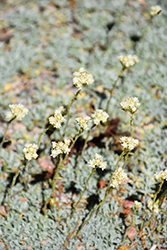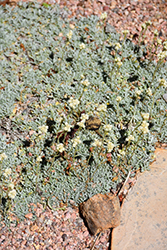It's all about ...
plants

Small-Leaf Pussytoes
Antennaria parvifolia
Plant Height: 3 inches
Flower Height: 6 inches
Spread: 10 inches
Sunlight:
![]()
![]()
Hardiness Zone: 3a
Other Names: Nuttall's Pussy Toes, Pussy-Toes, Low Everlasting
Description:
A low, mat forming selection, perfect for groundcover, border fronts or garden beds; clusters of silvery-white flowers rise atop fine, silvery gray-green foliage in summer; a highly drought tolerant variety that requires little to no maintenance
Ornamental Features
Small-Leaf Pussytoes has balls of white flowers with creamy white overtones rising above the foliage from late spring to late summer, which are interesting on close inspection. Its attractive tiny tomentose narrow leaves remain grayish green in colour with hints of silver throughout the year.
Landscape Attributes
Small-Leaf Pussytoes is an herbaceous evergreen perennial with a ground-hugging habit of growth. It brings an extremely fine and delicate texture to the garden composition and should be used to full effect.
This is a relatively low maintenance plant, and should not require much pruning, except when necessary, such as to remove dieback. It is a good choice for attracting butterflies to your yard, but is not particularly attractive to deer who tend to leave it alone in favor of tastier treats. It has no significant negative characteristics.
Small-Leaf Pussytoes is recommended for the following landscape applications;
- Mass Planting
- Rock/Alpine Gardens
- Border Edging
- General Garden Use
- Groundcover
- Naturalizing And Woodland Gardens
- Container Planting
Planting & Growing
Small-Leaf Pussytoes will grow to be only 3 inches tall at maturity extending to 6 inches tall with the flowers, with a spread of 10 inches. Its foliage tends to remain low and dense right to the ground. It grows at a medium rate, and under ideal conditions can be expected to live for approximately 5 years. As an evegreen perennial, this plant will typically keep its form and foliage year-round.
This plant does best in full sun to partial shade. It prefers dry to average moisture levels with very well-drained soil, and will often die in standing water. It is considered to be drought-tolerant, and thus makes an ideal choice for a low-water garden or xeriscape application. This plant should not require much in the way of fertilizing once established, although it may appreciate a shot of general-purpose fertilizer from time to time early in the growing season. It is not particular as to soil pH, but grows best in clay soils. It is highly tolerant of urban pollution and will even thrive in inner city environments. This species is native to parts of North America. It can be propagated by division.
Small-Leaf Pussytoes is a fine choice for the garden, but it is also a good selection for planting in outdoor pots and containers. Because of its spreading habit of growth, it is ideally suited for use as a 'spiller' in the 'spiller-thriller-filler' container combination; plant it near the edges where it can spill gracefully over the pot. Note that when growing plants in outdoor containers and baskets, they may require more frequent waterings than they would in the yard or garden. Be aware that in our climate, most plants cannot be expected to survive the winter if left in containers outdoors, and this plant is no exception. Contact our experts for more information on how to protect it over the winter months.

